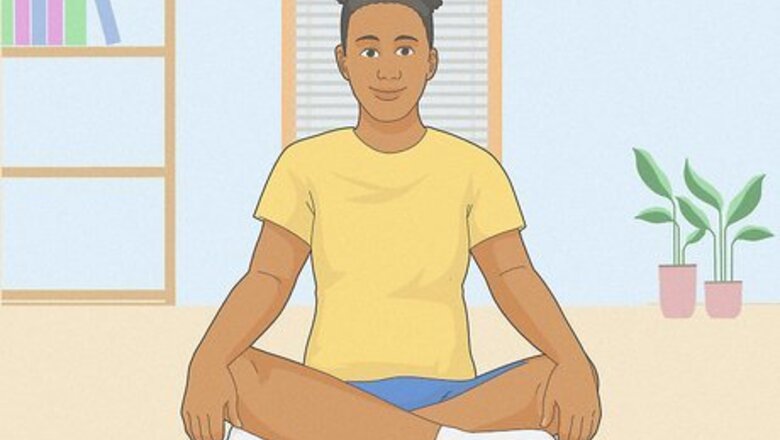
views
Using Breathing Techniques
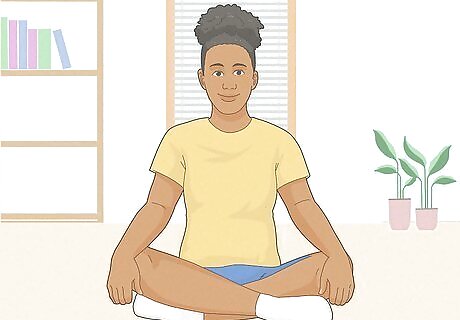
Make sure that you’re comfortable, relaxed, and ready to focus. This technique allows you to increase the oxygen in your body and can produce unusual sensations. Get ready and make sure you won't be distracted before using this technique. This technique is best done when sitting or lying down. Create a space that allows you to focus on this exercise. Consult a doctor before performing this technique to ensure that you’re healthy enough to do so. Don’t do this breathing exercise if you have certain medical conditions such as asthma.
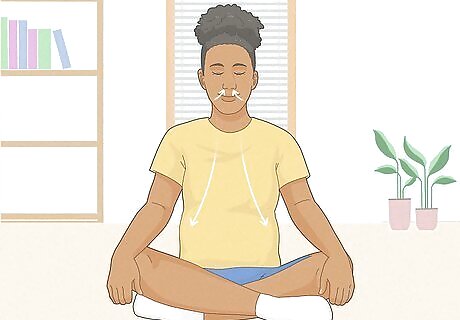
Inhale properly so you can bring more oxygen into your body. As you inhale, make sure that you’re breathing in deeply, using your diaphragm to draw in a full and complete breath. Full inhalations are critical to this breathing technique. Use your solar plexus or diaphragm to draw in a full breath. Your inhalation should take only 1 second. Try to pull in as much air as you can on your inhalation.
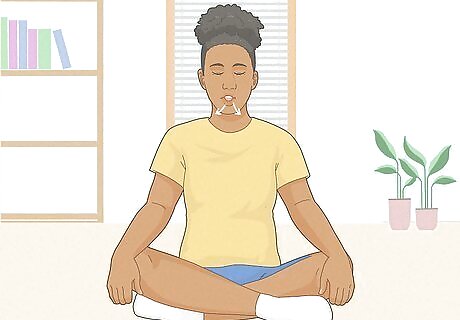
Exhale. Once you have taken a deep breath using your diaphragm, exhale quickly and forcefully. Make sure your lungs are mostly empty as you push all the air from them. Nearly emptying your lungs allows you to quickly inhale once again, drawing in and retaining oxygen. Tighten up your stomach on your exhalation to push air out of your lungs. Your exhalation should last about 1 second. Make your exhalations strong, pushing air out of your lungs. Don't exhale fully, but rather try to leave some air in your lungs.
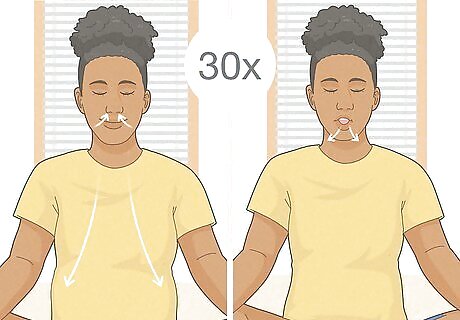
Repeat for 30 cycles. Take around 30 breaths in order to begin feeling the effects of this breathing technique. Fully inhale and exhale, counting both movements as one full breath until you have reached the full count of 30 breaths. You will begin to feel tingling in your body. Your mental state may begin to change. You may see swirling colors or images. If you feel dizzy or experience any pain, stop immediately.
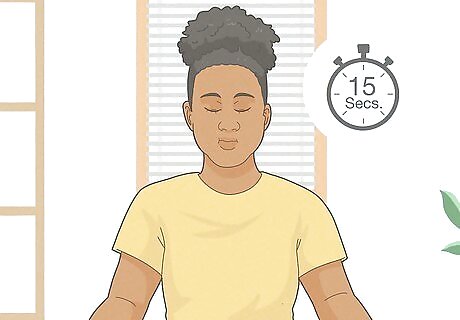
Hold your breath. After the final inhalation, exhale fully and hold your breath. Because you’ve inhaled a great deal of oxygen, it might be easier to hold your breath for a much longer period of time than normal. As you hold your breath, examine your body and mind for any new sensations you might be feeling. Hold your breath until you naturally feel the impulse to breathe again. Don't force the holding of your breath. Inhale when you feel you need to do so, holding a full inhalation for 15 seconds before breathing normally again.
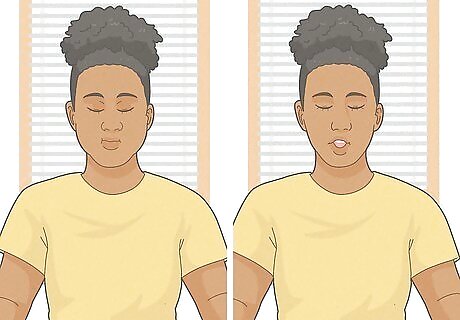
Practice. As you become more comfortable with this technique, start adding more rounds. Increasing the amount you practice the technique allows you to experience the sensations it produces more often and more strongly. Practice at least once a day. Add more rounds of this breathing exercise to experience more pronounced effects. Work slowly and patiently over time, increasing to about 4 rounds.
Using Intense Exercise
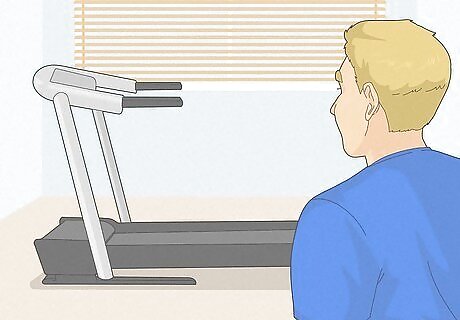
Pick your favorite form of exercise. Whether you are new to exercise or a veteran, it’s important to find a method of working out that appeals to you the most. Finding an exercise that you feel is challenging and engaging will help you feel the high that can come from intense exercise, like running. The exercise you choose must be one that you can maintain a high level of exertion with over time. Finding an exercise you love can make it easier to stick with it long enough to feel the high. You might consider running, swimming, rowing, or other repetitive cardiovascular exercises. Do not engage in heavy exercise sessions if you have a medical condition that prevents you from doing so, such as a heart condition or injury. Ask your doctor if strenuous exercise is safe for you.
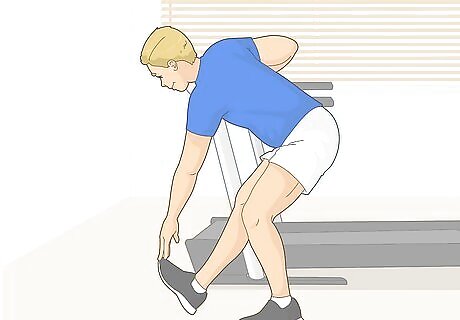
Warm up. Before you begin any exercise, it is important that you properly warm your body up. Starting a strenuous physical activity without a warm-up can result in an increased risk of injury. Warming up allows your body to be ready for more work, resulting in a stronger workout. Warming up can prevent injury. Warming up will let you get the most from your workout.
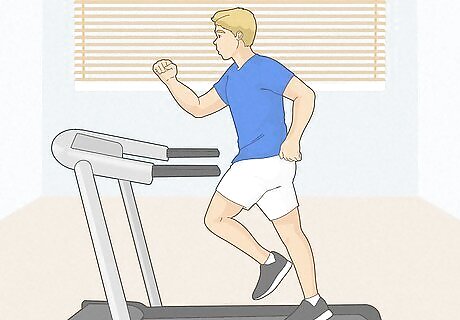
Push yourself. The key to feeling high from physical exertion is to push your body during your workout. Although the exact biological mechanism for feeling this high is unknown, difficult and prolonged physical exertion may produce the feelings associated with exercise highs. It is thought that the increased production of endorphins by the body during exertion may be responsible for the high feelings. Some studies suggest that the high from exercise is psychological, resulting from achieving a difficult goal. Stop if you experience any pain or feel unusually fatigued, dizziness, tightness in the chest, or blurred vision.
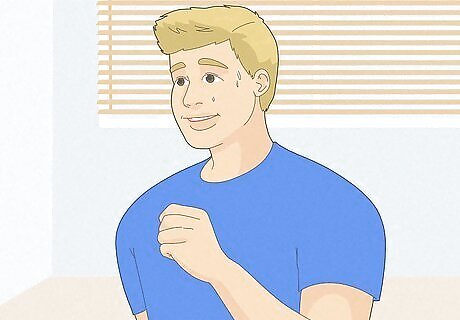
Feel the high. During your intense and prolonged session of exercise, you may begin to feel the high that’s associated with such activities. This high is described as being different by individuals who experience it. Evaluate your own feelings during exercise to see if you are feeling any highs that might result. Some people report the feeling of exercise high as being euphoric. Others report feeling invincible or elevated from exercise highs. Most people will feel the high that comes from intense exercise. However, not everyone does.
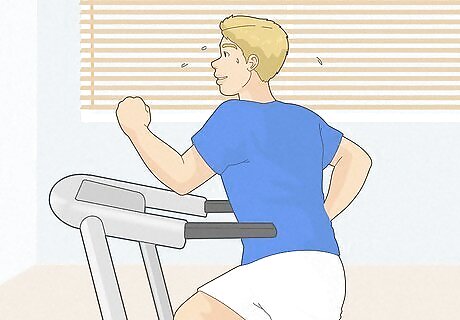
Continue exercising. Beyond the immediate sensation of feeling high, engaging in regular and intense exercise can help fight depression and stress while relieving tension. Keeping up your strenuous workout sessions allows you to increase your level of fitness and health while continuously enjoying the high that difficult exercise can bring. Exercise can alleviate symptoms of depression and anxiety. You can feel the highs brought on by exercise any time by getting in a difficult workout. Beyond feeling high, exercise can make your body strong and healthy.
Using the Ganzfeld Technique
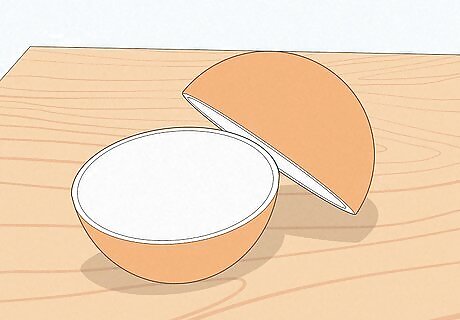
Cut a ping pong ball in half. The Ganzfeld technique is one that utilizes sensory deprivation to produce hallucinations and other unusual mental states. Ping-pong ball halves placed over your eyes are used to block out your sight in this technique—so, get a ping-pong ball and cut it directly and evenly in half to begin. Draw a guideline with a marker or pen to ensure your cut is even and straight. Try cutting the ping pong ball with a razor or sharp knife.
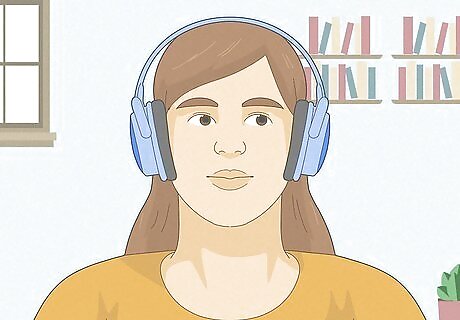
Turn on white noise. In order to block out your sense of sound, the Ganzfeld technique suggests that you play white noise or radio static. This noise prevents you from hearing other distinct sounds and may allow you to experience auditory hallucinations within the meaningless static. You can find white noise generators online. If you have a radio, try tuning it to a station that is only static. It's best to use headphones to ensure that white noise is the only sound you hear.
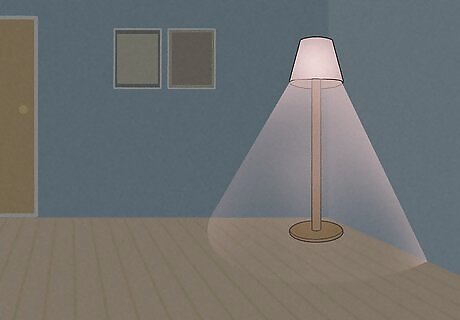
Manage the lighting. Find a level of lighting that is not too dark and not too bright in order to get the most from the Ganzfeld technique. The ideal lighting should be dim and indirect, allowing you to see the light through the ping pong balls but not brightly. You can try moving a lamp closer or further away from you to control the brightness. Some people have done Ganzfeld experiments using red lighting.
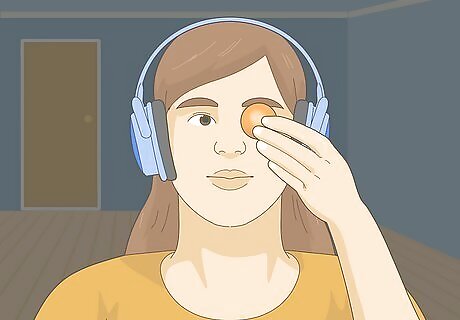
Tape the ping pong balls on your eyes. Once you have created the rest of your space and found a source of dim lighting and white noise, it’s time to tape the ping-pong ball halves over your eyes. Taping the ping pong lids over your eyes will block your sense of sight almost entirely while allowing only the indirect lighting to come through. Use gentle and easily removable adhesive tape to affix the ping pong halves over your eyes. Make sure the ping pong ball fully covers your eyes. Be careful when taping the ping pong balls to your eyes. Once affixed, keep your eyes open under the cover of the ping pong ball halves.
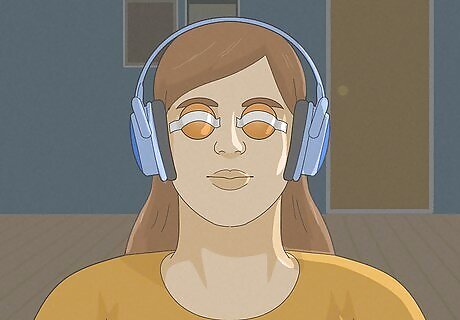
Wait for any hallucinations. The sensory deprivation allows your mind to wander and create very detailed and interesting experiences. Your eyes and ears will try to fill in the details that are denied by the white noise and soft light entering through the ping pong balls. Stick with it for a few minutes, relaxing and awaiting any strange or unusual sounds or sights that your mind may produce. You may see something simple at first, such as a swirling light or mist. You may experience very clear mental images. You may hear noises that sound as if they are nearby or in the room with you. You may experience very engaging and realistic hallucinations that involve all of your senses. Stop immediately if you feel uncomfortable or experience any unwanted effects



















Comments
0 comment